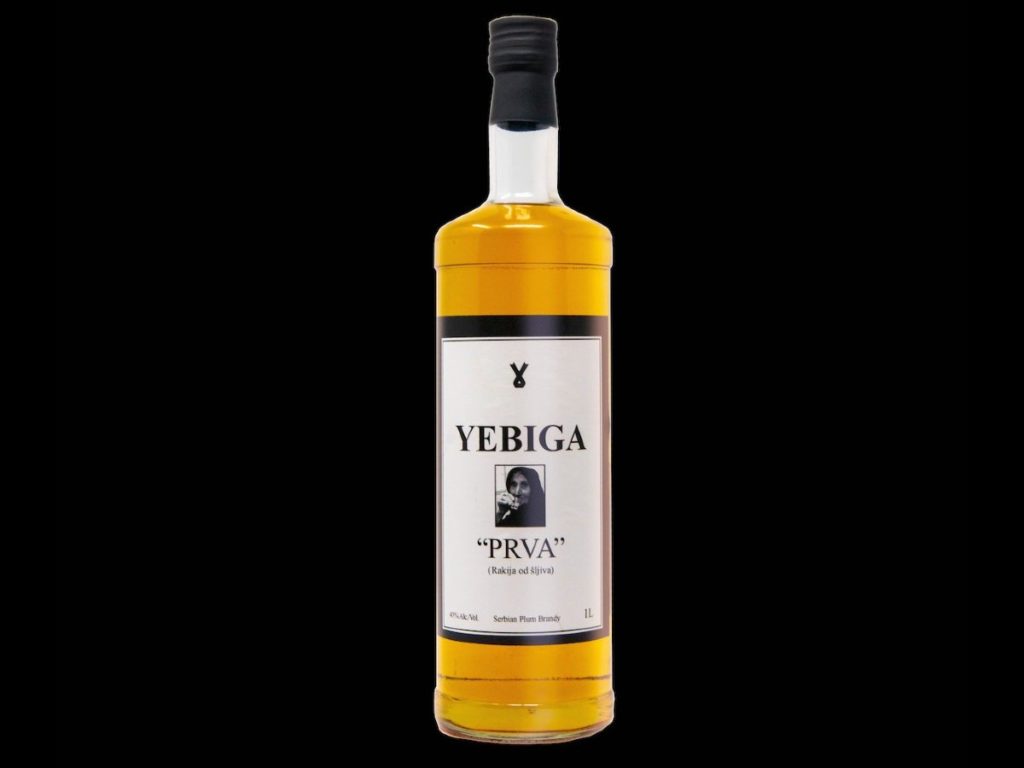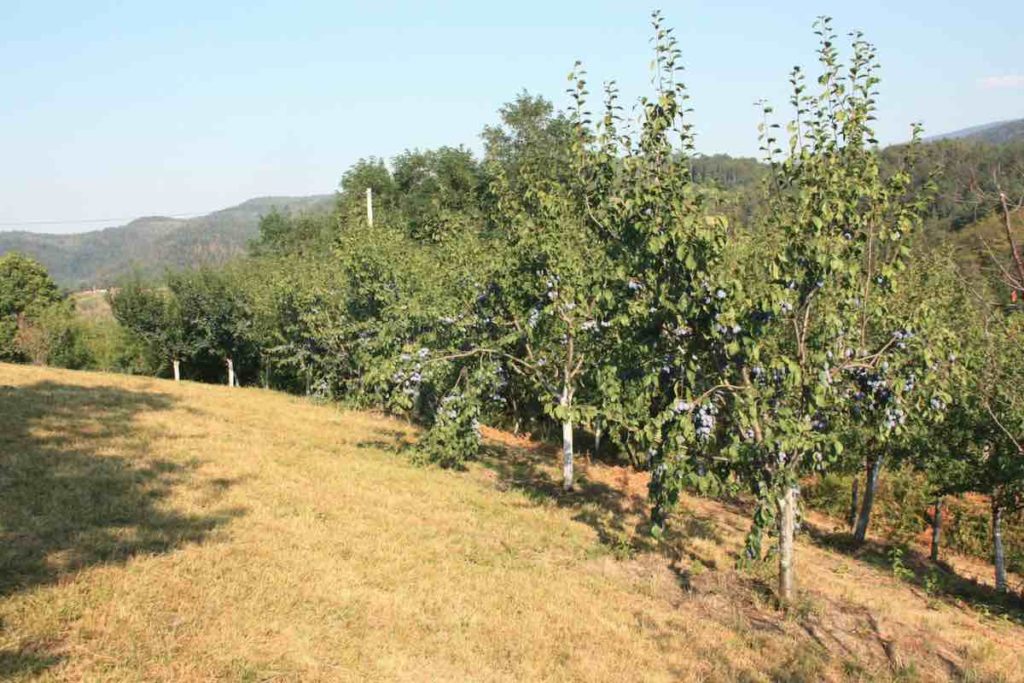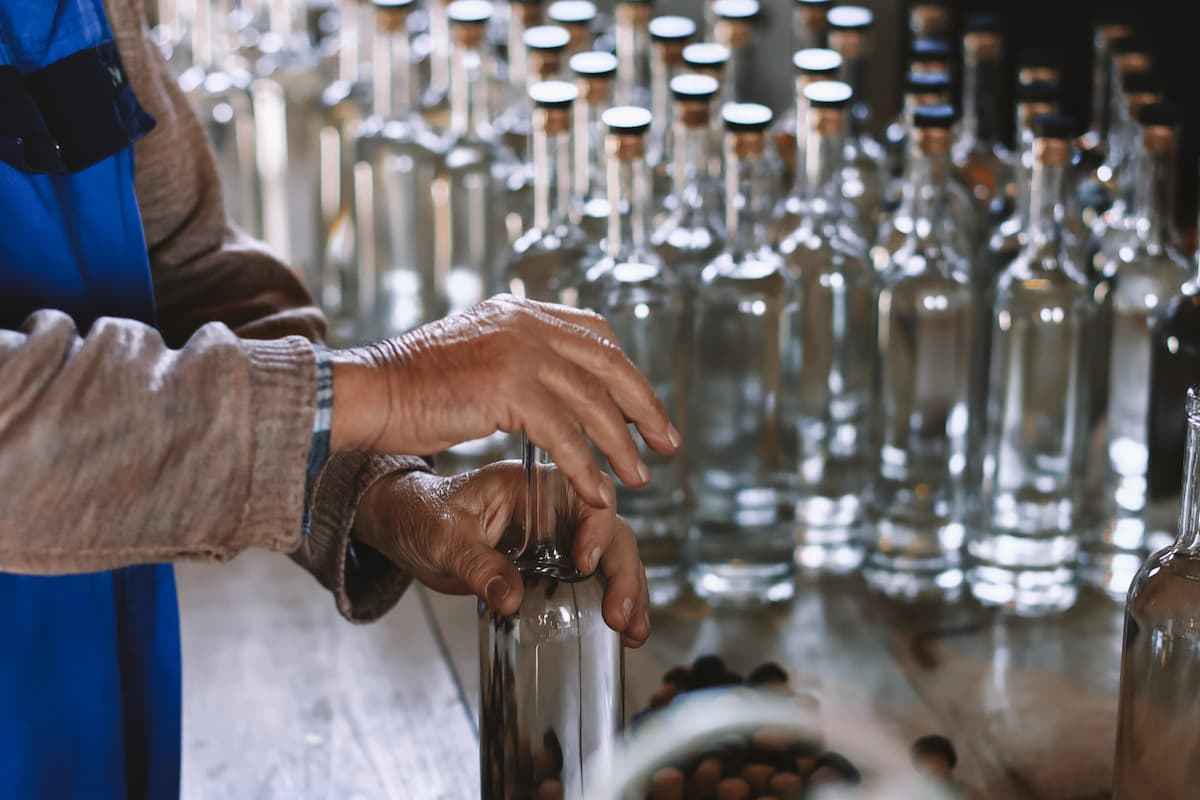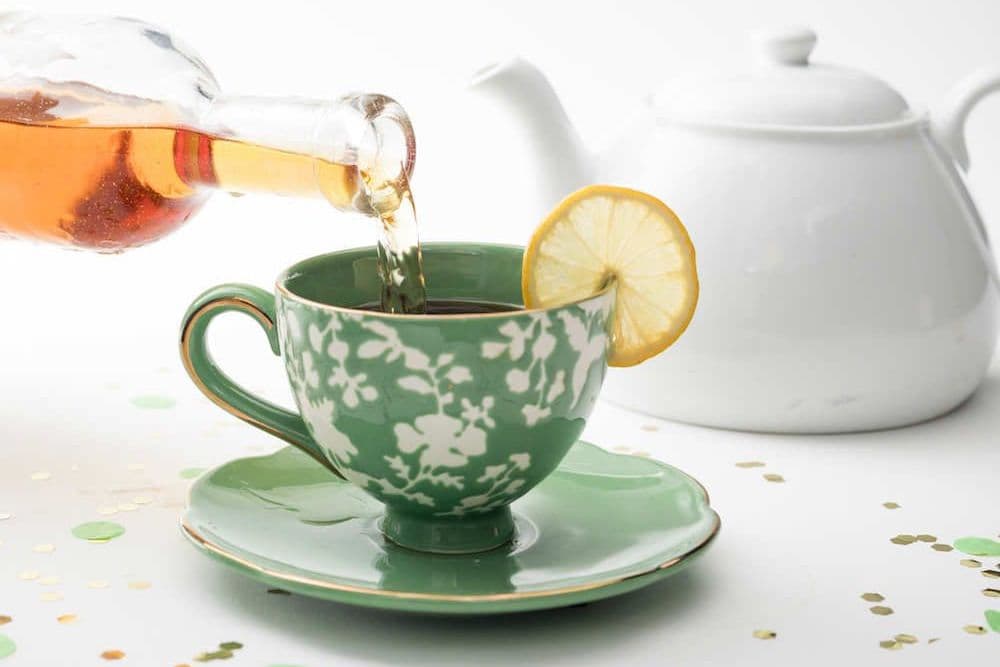Bill Gould’s first encounter with rakija came in 1992, when his band Faith No More was performing in Budapest. After the show, Serbian fans who’d bussed in from Belgrade plied Gould with the homemade plum brandy, which the bassist came to appreciate on both a taste and emotional level.
“They would bring rakija because money was really tight then,” Gould says. “But rakija was something where each family makes their own and it’s very special to them, and they were giving it to us as gifts.”
Gould grew curious about all the rakija that he wasn’t sipping after shows. “It made me realize that where I could go with a gig was only scratching the surface of what was out there,” he says.
In 1996, Gould rented a car and embarked on a one-man rakija tour through Serbia, a pilgrimage he’s repeated almost every year since. After two-and-a-half-decades of reconnaissance, Gould brought his own brand, Yebiga, to U.S. shores in 2019 with the launch of its PRVA expression, which means “first.”
What Is Rakija?
Now is a good time to pause and sort out what exactly rakija is, but that task is not as easy as it sounds. In its broadest definition, rakija (also called rakia or raki) refers to fruit brandy made primarily in the Balkans. What it is distilled from varies from country to country: In Serbia, plums are the norm.
But almost as important as what rakija is made from is where it is made. Families began distilling rakija in their homes around 800 years ago, and this homemade—and thus, unregulated—tradition largely continues. The label pays tribute to that fact, depicting Ljubica Abčić, a “Baba” (Serbian grandmother) whose family Gould came to know on his visits—she distilled her own rakija until she was 98 years old.

Gould says that it’s difficult to find a good commercially available rakija even in the Balkans: Most of what’s sold in stores is cheap, harsh, and industrial. It’s what’s made in barns and backyards that’s valued and broken out to mark life events and family milestones.
“When your daughter is getting married, you’re not going to be serving [store-bought] stuff at the wedding,” says Gould. “You’re going to be serving stuff that is coming from your grandfather’s stash, from the barrels down in the barn.”
Made on the Mountain
Yebiga, which takes its name from a ubiquitous Balkan expression that more or less means “f*ck it,” isn’t the first rakija to be sold in the United States. But according to Gould, the rakijas found at Balkan food stores in the states aren’t of much better quality than the commercial-grade stuff in the actual Balkans.
Likening the situation of rakija in Serbia today to mezcal in Mexico 30 years ago, Gould notes that some families have begun to distill rakija meant for wider distribution while preserving the traditional, artisanal methods of production. Every step of PRVA’s production occurs at one such family’s farm just outside of the central Serbian city of Kraljevo.
The farm, which has been held by the same family for centuries and has no street address, sits on a mountain at about the highest elevation you can reach—1800 meters—while still growing plum trees. According to Gould, the influence of the farm’s micro-climate on the plums is felt in the final product.

“It’s surrounded by conifers and pine trees so you’re getting a little bit of this Christmas-y feeling with the distillate that’s very unique,” he says.
The plums are fermented on-site and distilled in copper pot stills. Afterward, the distillate is aged for 18 months in Serbian oak casks built from trees harvested from the same hillside, and bottled at 43% ABV.
Selling such a hyper-local, artisinal rakija in the United States makes Yebiga a clear outlier in the U.S. market.
“I’m trying to make something that would never be sold available for people,” Gould says.
Bringing Yebiga Home
Gould doesn’t encourage PRVA’s use in cocktails, as he feels that mixing the spirit diminishes its character. Instead, he advocates for it to be served in the traditional manner: sipped neat, just below room temperature.
Yebiga debuted in California and Illinois and is now also available in Washington D.C., Florida, New York, New Jersey, Pennsylvania, and Connecticut. It expects to add more states through 2021 and launch a second expression this Spring called BELA, a clear rakija aged in stainless steel that will have a more floral quality.
Gould says that Yebiga has been warmly received by Americans with Balkan heritage.
“I’ve brought it into ex-Yugoslavian communities that appreciate that they can get some of this, because it does bring them home a little bit,” he says. “It’s something that they had to go [to the Balkans] to get, the family or the farm, for that special kind of rakija at that level. So it really means a lot.”
According to Gould, non-Balkans have embraced Yebiga as well—after he introduces them to the concept of rakija in the first place.
“How I can explain rakija here is that you’re getting something that’s more than just something to get drunk with or something that tastes good,” he says. “You’re getting a philosophy of life. It’s very personalized, and it’s a real source of pride.”



